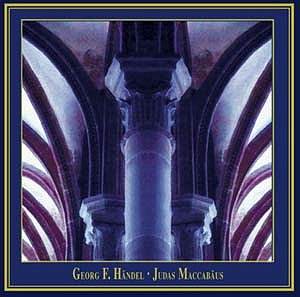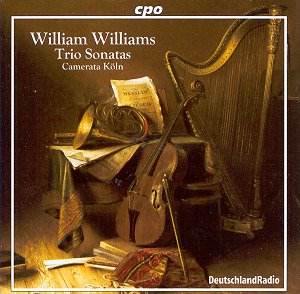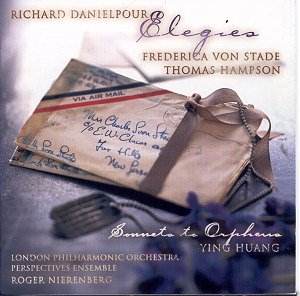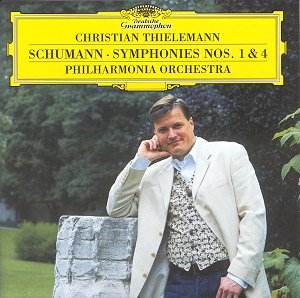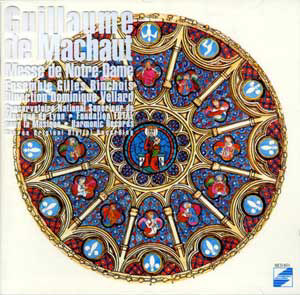 Composer: Guillaume de Machaut
Composer: Guillaume de Machaut
Works: Messe de Notre-Dame
Performers: Ensemble Gilles Binchois, Dominique Vellard (director)
Recording: Rec Saint-Martin Collegiate Church, Champeaux, France, 5-9 September 1990
Label: Harmonic Records H/CD 8931 [56.03]
The Messe de Notre-Dame, composed by Guillaume de Machaut in the 14th century, occupies a pivotal place in the history of Western music as arguably the first complete setting of the Mass Ordinary. Its intricate interplay of voices and structured cyclic form not only heralded innovations in sacred music but also influenced generations of composers. Machaut’s oeuvre, deeply interwoven with the cultural fabric of his time, exemplifies a transition from the medieval to the nascent Renaissance, characterized by a burgeoning complexity in polyphony and rhythmic innovation. The present recording by Ensemble Gilles Binchois, under the direction of Dominique Vellard, invites listeners to experience this foundational work through a contemporary lens while respecting its historical roots.
Vellard’s interpretation stands out due to its thoughtful incorporation of plainchant interpolations and additional liturgical elements, which serve to contextualize the celebrated sections of the Mass. This reconstruction approach not only enhances the understanding of Machaut’s intentions but also enriches the overall texture of the performance. By including introits, graduals, and alleluias, the recording creates a fuller liturgical experience that mirrors what might have been a votive Mass for the composer himself. The resulting homogeneity of tone and ensemble allows the listener to appreciate the elegance of Machaut’s musical language, even as it occasionally veers toward a more conservative delivery than some of its more flamboyant contemporaries.
Technically, the ensemble’s singing is tight, with an admirable focus on blend and clarity. However, the standout presence of countertenor Andreas Scholl, while undeniably beautiful, occasionally disrupts the desired cohesion. His distinctively vibrant timbre, though dazzling in its own right, seems to leap out from the otherwise balanced texture, presenting a challenge to the overall sonic unity. This contrast might not detract for all listeners but serves to highlight the interpretive choices made by Vellard, who leans towards a more traditional and restrained rendition rather than the more improvisatory, free-spirited approaches exemplified by conductors like Marcel Peres.
The engineering of this recording merits attention as well. The acoustics of the Saint-Martin Collegiate Church provide a resonant backdrop that enhances the polyphonic lines without overwhelming the individual voices. Microphone placement captures the subtle details of the performance, allowing the listener to appreciate the intricate counterpoint that defines Machaut’s style. The sound is rich and vibrant, with a palpable sense of space that transports the listener into the sacred environment for which this music was originally conceived.
While this recording serves as a commendable introduction to Machaut’s Messe de Notre-Dame, it operates within a crowded field of interpretations that invite exploration. The restrained yet meticulous approach of Vellard and Ensemble Gilles Binchois may appeal to those seeking a more scholarly, text-focused experience, but it lacks the adventurous spirit found in recordings that embrace improvisation and a more liberated interpretation of the musical material. Thus, for aficionadi of medieval music, this disc is a valuable addition to the repertoire, albeit one that encourages further investigation into the myriad interpretations of this seminal work.
